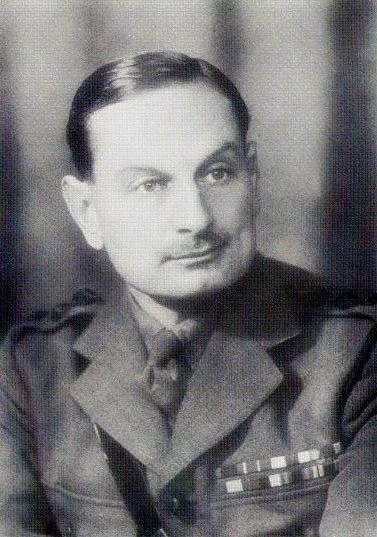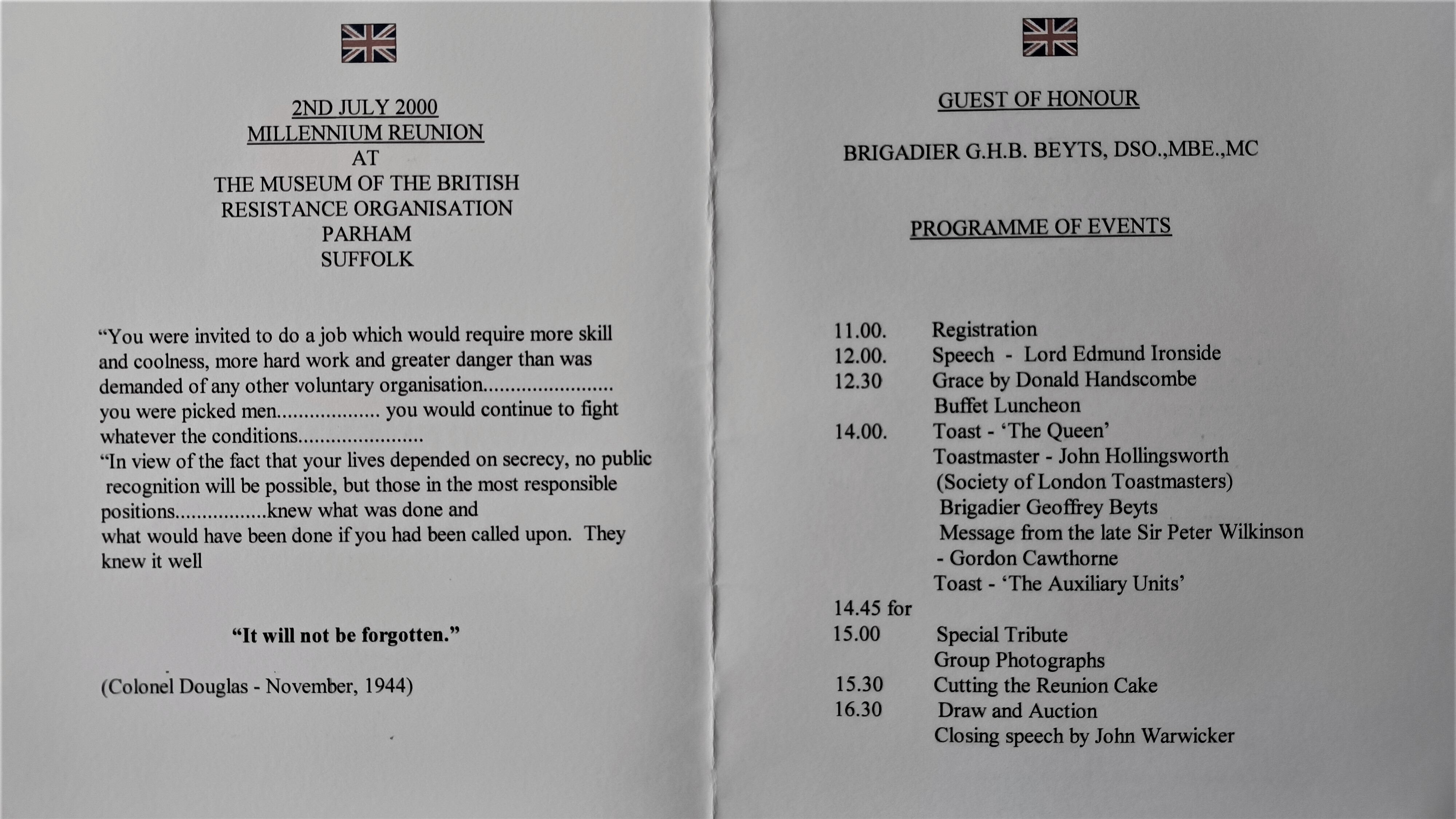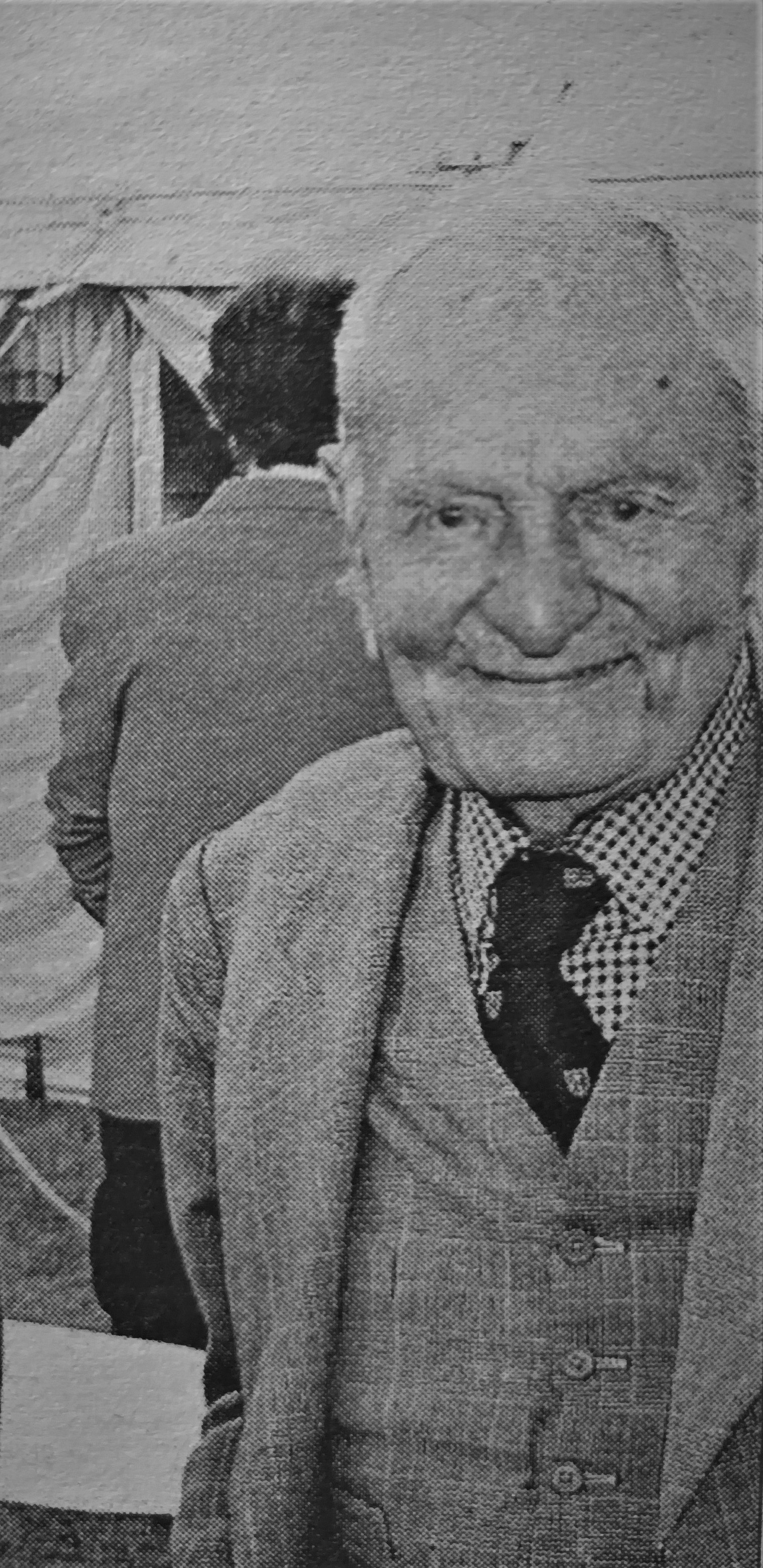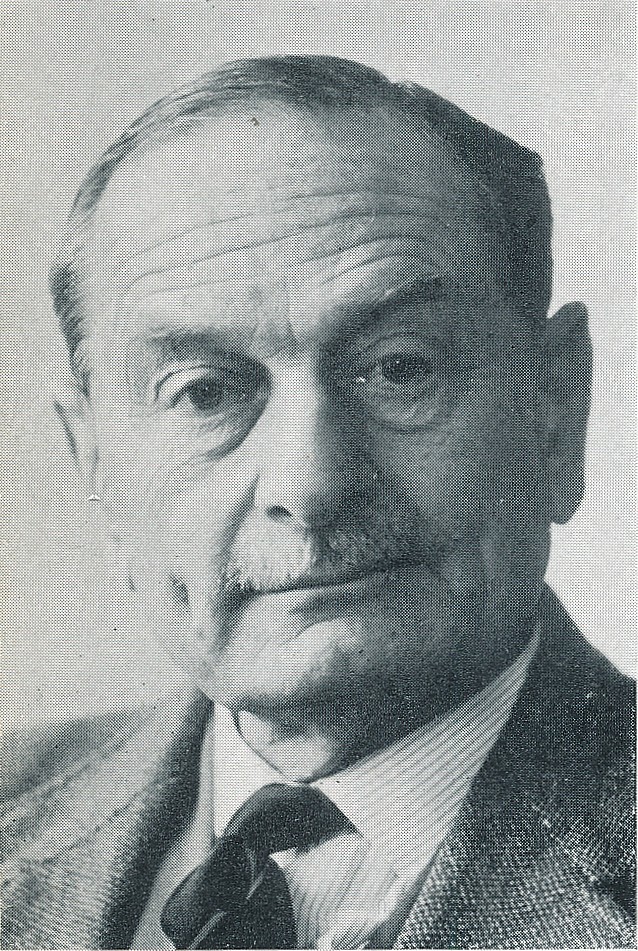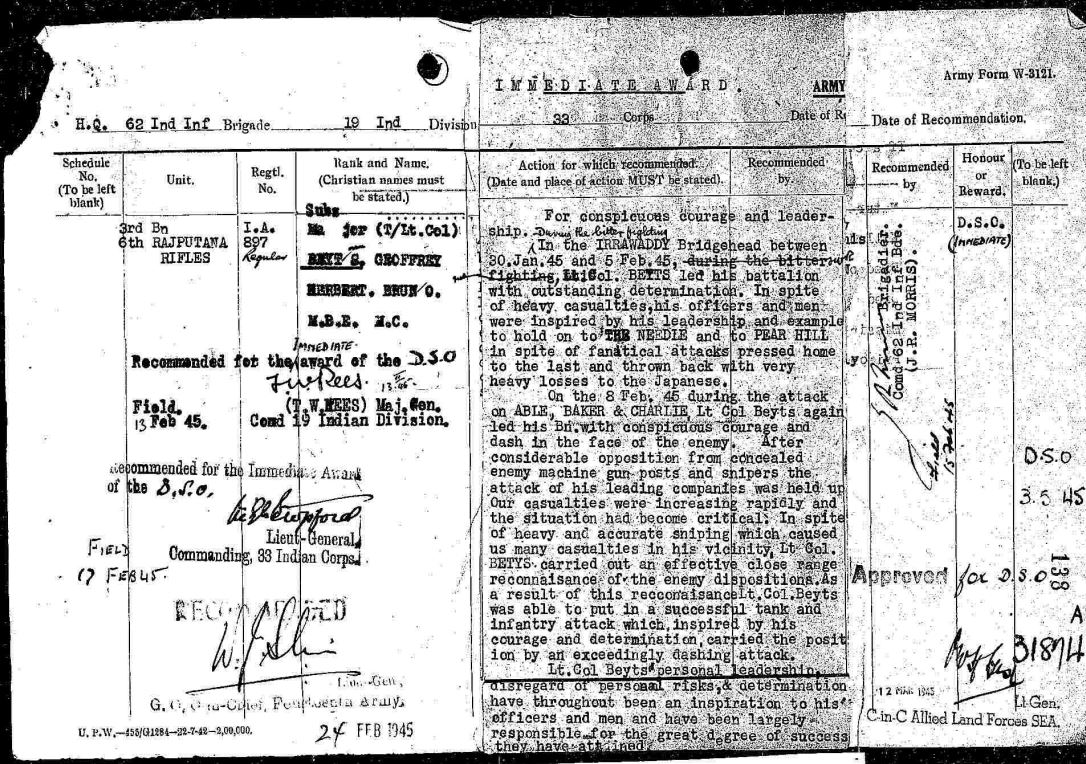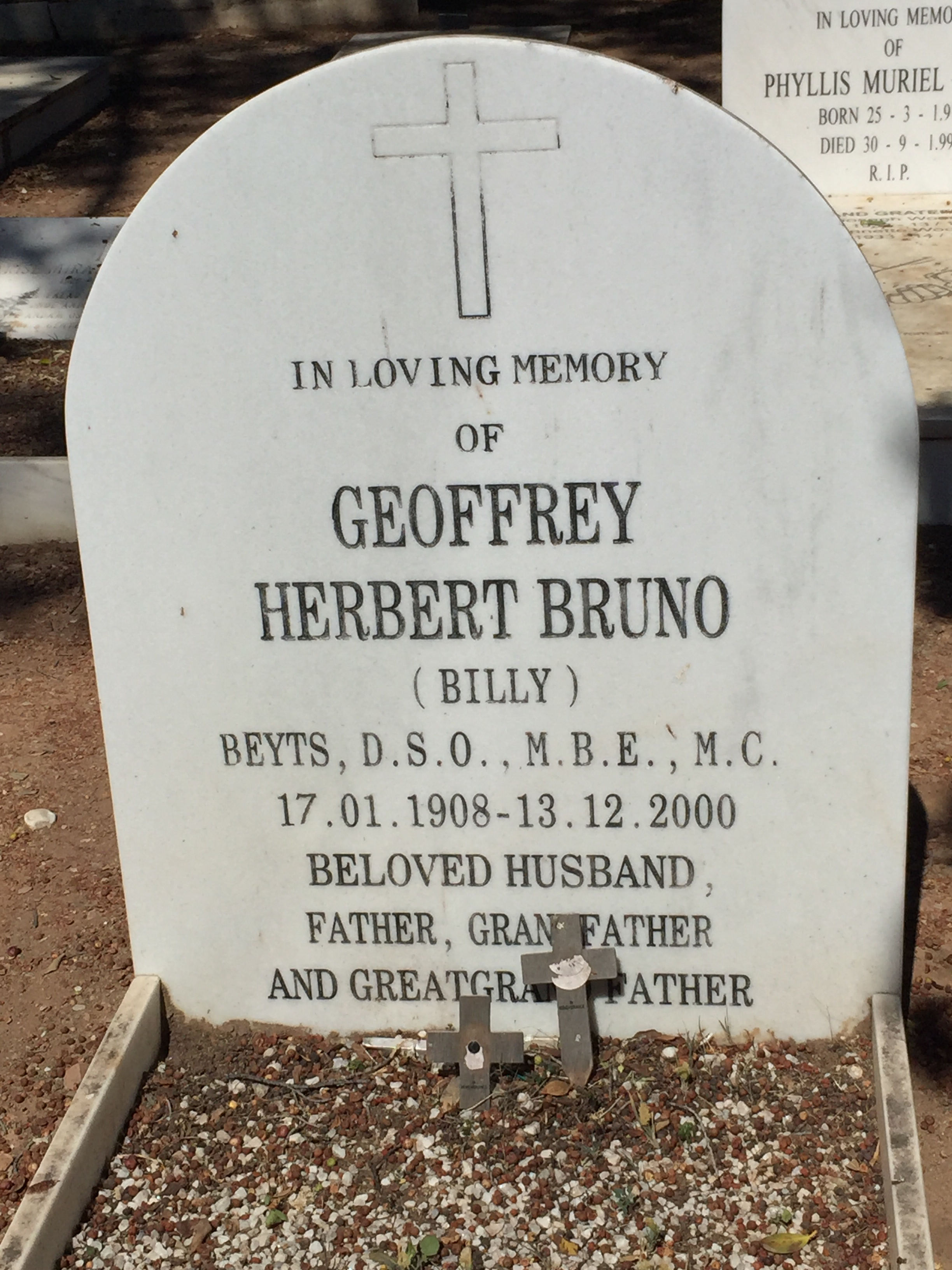Born in India the son of Captain Roger Fleetwood Sconce Beyts and his wife Constance Mary (nee Bruno). He married Ruby Scott-Elliot 2 Aug 1940 in Westminster. They spent their 48 hour honeymoon in Sawbridgeworth, Hertfordshire, in a house lent to them by Captain Mike Henderson.
| Unit or location | Role | Posted from | until |
|---|---|---|---|
| Coleshill House, GHQ | Deputy Commander Auxiliary Units | 02 Jul 1940 | 05 Jun 1942 |
| Force 136 | SOE Agent | 1944 | 1945 |
| Force 136 | SOE Agent | 1944 | 1945 |
Bowden House School, Seaford and Wellington College, Berkshire
Army
5th Northumberland Fusiliers for first year of military career in India.
Posted to 3rd battalion, 6th Rajputana Rifles. Served with them in the Saya San rebellion in Burma 1930-1932 and in Waziristan 1936-1939. Awarded the Military Cross in Dec 1932 for bravery in Burma along with the India General Service medal 1909 with clasp 1930-1932 and India General Service Medal 1936 with clasp 1936-1937.
Staff College Camberley 1937-1939.
GSOIII India Office War Staff 1939-1940. Involved in training Independent Companies in Scotland in 1940.
Second in Command Auxiliary Units 2 July 1940 - 6 Oct 1941 and General Staff Officer I from 6 Oct 1941 - 5 June 1942. He and his wife lived in a gardener's cottage in the grounds of the Vicarage at Coleshill, a two room down and two room up cottage with outside sanitation. His wife Ruby was put in charge of the domestic arrangements which included the feeding of HQ staff and all those visiting for training. The couple had a baby girl, Vanessa in Oct 1942.
His wife Ruby later joined SOE in 1943 and became part of Force 136 in April 1944, sailing to India
Awarded MBE 1941.
August 1942 sent to India as Chief of Staff to Colin MacKenzie and helped him set up SOE in the Far East. They would later be known as Force 136.
December 1943 – April 1945 Commanded 6th Rajputana Rifles in the Burma Campaign and awarded DSO for this in May 1945.
1946-1947 Commanded Indian Army Infantry School at Mhow leaving following the Declaration of Independence.
In the 1960s he worked at Ministry of Defence, at Lansdowne House, Berkeley Square, London in Army Officer Recruitment Unit as a retired officer grade III. Alan Ashby remembers him; "he was the most kindly of gentlemen and even though I was a mere clerk he always treated me with dignity, courtesy and respect. On one occasion I asked how he had been awarded his M.C. With a smile on his face he replied 'That was a long time ago boy'. From our office at Berkeley Square I would accompany him to Charing Cross Station. Upon reaching Admiralty Arch he would lift his Trilby hat. Upon asking why, he directed me to a small memorial to his Uncle, a Captain in the Royal Marines, who's ship sank in the South Africa conflicts." The plaque reads; Erected by the Officers and men of the Royal Marines in memory of their comrades who were killed in action or died of wounds or disease in South Africa and China 1899-1900. China. Captain Herbert William Hope Beyts RMA, HMS Centurion.
Obituary from The Telegraph - (Filed: 22 March 2001)
Brigadier Geoffrey "Billy" Beyts, who has died aged 92, was awarded an MC and a DSO during a career with the Indian Army in which he saw action against Burmese rebels, Waziri tribesman and the Japanese Army.
In 1930, aged only 22 and commanding a company of his father's old Regiment, the Third Battalion, Sixth Rajputana Rifles, Beyts was allotted an area of Burmese teak forest the size of Wales to the west of the Irrawaddy river. Large areas of the country were in revolt, and Beyts was given a target list of 100 rebels. By the time he and his company emerged from the jungle, nine months later, every man on the list had been either killed or captured. For his conduct of these operations Beyts was awarded a Military Cross.
Thirteen years later, and by now commanding his battalion, Beyts was again in Burma at the forefront of Field Marshal Slim's pursuit of the retreating Japanese. He took part in the crossing of the Irrawaddy and the subsequent breakout, and played an important part in the capture of Maymyo and the Japanese mint there, which contained millions of rupees.
After the capture of Mandalay, Beyts was promoted to brigadier and commanded his brigade for the remainder of the campaign. He was also awarded a DSO to add to the three mentions in dispatches he had already earned during the advance from the Chindwin.
Geoffrey Herbert Bruno Beyts was born, at Budj, in Kutch State, India, on January 17 1908. Educated at Bowden House School, Seaford, and Wellington College, he entered the Royal Military College, Sandhurst with a King's Cadetship, in 1926.
Commissioned in 1928, he sailed to India to serve the customary year with a British battalion before joining his Indian Regiment. At the end of the year his battalion, the Northumberland Fusiliers, invited him to remain, but he declined, preferring to join the Third Battalion, Sixth Rajputana Rifles. In 1930 he went to Burma.
He also spent some time as part of the garrison of Fort Dufferin in Mandalay, which stood him in good stead when that city was captured in 1945.
In 1936, he saw action again in the Waziristan campaign, after which he passed the Staff College examination, being the first officer of his battalion to do so. He did not see his men again for another six years. In September 1939 he was appointed as a GSO3 at the War Staff of the India Office, and later with Middle East Operations at the War Office. He then returned to Britain to set up a resistance organisation which became Auxiliary Units.
For these services Beyts was awarded the MBE, and in August 1942 he was sent to India as Chief of Staff to Colin McKenzie, who was setting up the SOE resistance organisation (later renamed Force 136) in South East Asia. At the end of 1943, he returned to regimental soldering, commanding his battalion, and later the brigade of which it formed a part, until the end of the Burma campaign. After a short period of leave in England, Beyts helped to plan the programme for the Indian Army Victory Contingent, before returning to India in 1946, to take command of the Infantry School at Mhow. At independence, Beyts left India for Kenya, thus severing the last link of a family that had served in India for 340 years. Arriving in Kenya, he planned to start a dairy farm, but finding that, even after diversifying, this project alone could not support his family, he applied for an appointment with the Kenya Administration. While his wife ran the farm, Beyts served as District Commissioner for the Mweiga area.
The district included "Treetops" and in 1952, it fell to Beyts to tell Prince Philip, who told Princess Elizabeth and that King George VI had died. In 1962, in the wake of the Mau Mau rebellion, Beyts was advised to leave Kenya. He was, however, unable to sell his farm, and received no compensation. The fruits of 13 years' work and the capital put into the farm were thereby lost.
Returning to Britain, Beyts took up an appointment as personnel officer for Vaux Breweries at Sunderland, then, three years later, became a Retired Officer Grade 3 with the MoD, with responsibility for the recruitment of Army officers.
Having retired to Devon in 1970, he and his wife were asked, in 1972, to supervise a camp at Greenham Common, Newbury, for Ugandan Asians expelled by Idi Amin. They were the perfect choice since both were fluent in Hindustani and Swahili.
Following the death of his first wife, Beyts moved to Nerja in Spain, but he maintained his service connections. He was founder, and life president, of the Royal British Legion's Costa del Sol branch.
"Billy" Beyts was driven by a firm religious faith and a strong sense of duty. In his autobiography The King's Salt, published in 1983, he said: "Caring for others in their distress has brought me the greatest rewards."
He married first, in 1940, Ruby Scott-Elliot, who died in 1980. He married, secondly, Linda Segrave Daly, who survives him together with the son and daughter of his first marriage.
Text Copyright © of Telegraph Group Limited 2001
Beyts attended a re-union of Auxiliers in 2000 at Parham, Suffolk where he was the guest of honour. At that time he was living in Spain where he is buried.
The Kings Salt by Bill Beyts
The Telegraph 22 March 2001
Kentish Express 13 July 2000
TNA ref WO373/37/83
Gloucester Citizen 21 December 1932
IWM ref 29453
War Office Record
Alan Ashby
